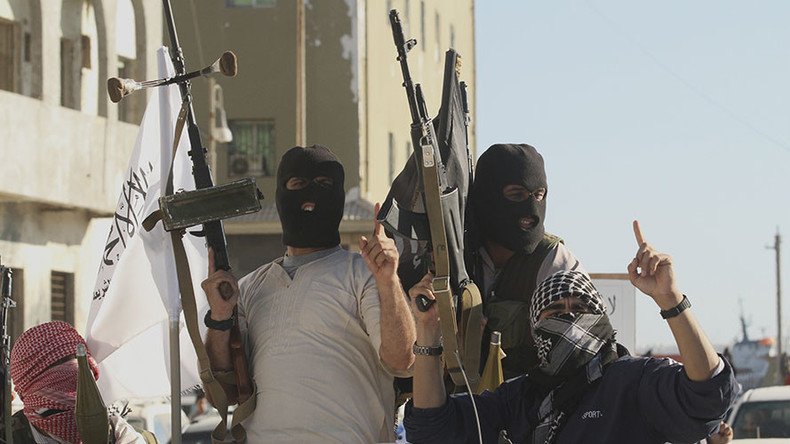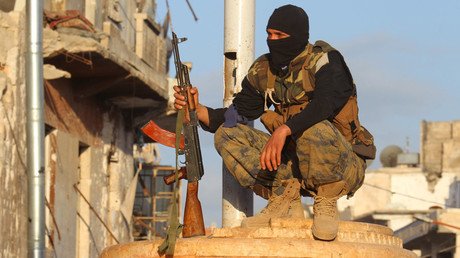Blowback? Manchester bomber linked to terrorist group which UK allegedly backed

Manchester suicide bomber Salman Abedi and his father, Ramadan, had long-standing links to a violent jihadist group which may have had British backing for the 2011 Libyan war and a 1996 attempt to kill then-Libyan leader Muammar Gaddafi.
The controversy centers on the role of the Libyan Islamic Fighting Group (LIFG), which was both an anti-Gaddafi and Al-Qaeda subsidiary in the North African state.
Many of the fighters which formed the group in the mid-90s were veterans of the Afghan-Soviet war from the 1980s. They went on to fight the Gaddafi regime in Libya itself.
The war saw the overthrow of the Gaddafi regime and the eventual murder of the leader himself after he was captured by opposition fighters. Since NATO’s intervention, Libya has been in chaos.
It has descended into a protracted civil war, is a major contributor to the international refugee crisis, has its own branch of Islamic State (IS, formerly ISIS/ISIL), and two opposing governments.
The elder Abedi was reportedly one of the LIFG fighters who fled Gaddafi’s response to the rebels, settling in London and, later, in Manchester.
The area of Manchester in which Salman Abedi grew up was home to a number of other LIFG members, including former senior commanders including Abd al-Baset Azzouz, who left Manchester to go to Libya and run a 200-300-strong militant network for Osama Bin Laden’s successor, Ayman al-Zawahiri. Azzouz is reported to be an expert bomb-maker.
In 2002, former MI6 agent and whistleblower David Shayler accused the British spy agency of colluding with the jihadist group in a failed 1996 effort to kill Gaddafi, an allegation the British government strenuously denies.
Theresa May was Home Secretary at the time. Did she approve this? MI5 reports to her https://t.co/H2aRNyelQlpic.twitter.com/rNiofCHV2X
— Mark Curtis (@markcurtis30) May 25, 2017
Allegations have also emerged that in 2011, the UK may have relaxed restrictions on LIFG fighters based in the UK and helped them return to Libya to fight Gaddafi.
The UK was at that time engaged in fighting Gaddafi as part of a US-led NATO coalition. Former fighters interviewed by the Middle East Eye said that the UK actively supported the return of anti-Gaddafi dissidents, including those with Al-Qaeda links, to the North African state.
One fighter who spoke to the Middle East Eye said he had been interviewed by an MI5 agent who asked if he was “willing to go into battle?”
“While I took time to find an answer he turned and told me the British government have no problem with people fighting against Gaddafi,” the fighter said.
Others reported that when the war in Libya began, they looked into how to get fake documents, because their passports had been removed as part of restrictive control orders placed on them by the UK government.
One said that within days, the authorities had returned their passports, after which they headed straight to Libya to take on Gaddafi.
At the time of the war, current UK Prime Minister Theresa May was Home Secretary, with oversight of MI5 operations. It is not clear if she was aware of the decision to relax restrictions of jihadists and return their travel documents.













